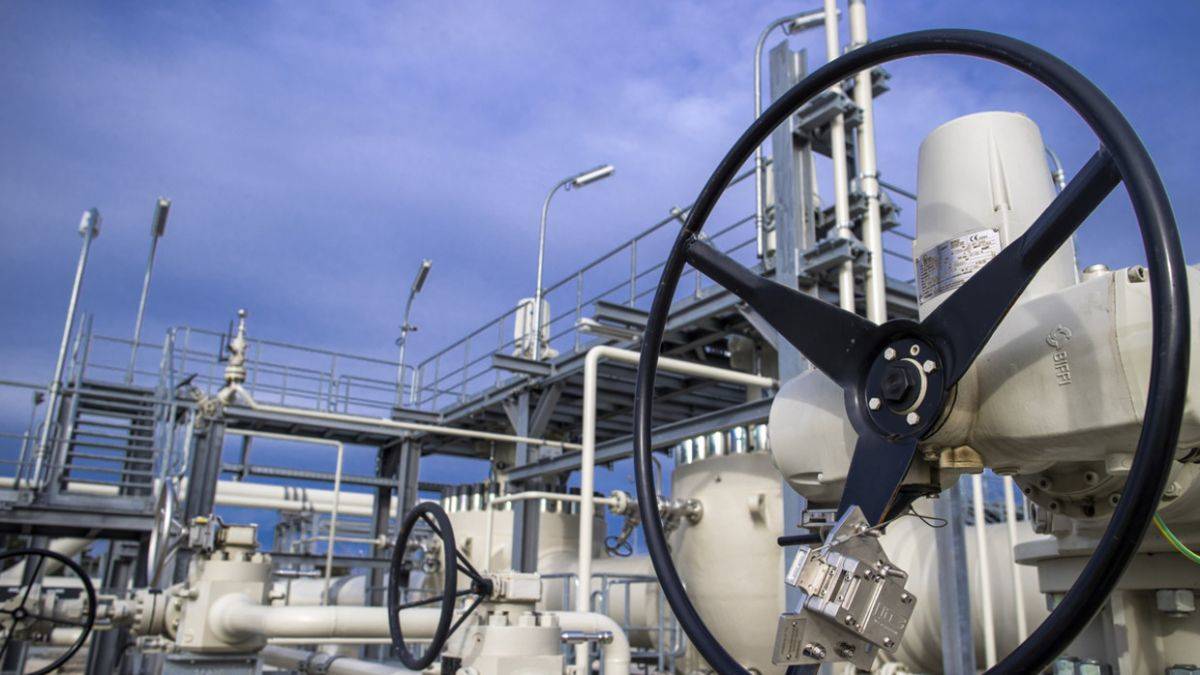Europe is terrified, waiting for Putin to cut off gas
Europe’s central bank faces a unique situation. It needs to curb record inflation without slowing down already weak economic growth, which is threatened by new shocks in the form of Russian gas supply cuts due to sanctions. Germany estimates losses at hundreds of billions of euros.
German economists say that if Russian gas supplies are cut off, Europe’s largest economy will go into recession, with repercussions spreading across the continent.
In a published economic forecast, Germany’s five largest economic institutions sharply lowered their GDP estimates because the special operation in Ukraine is slowing the economic recovery from the COVID-19 pandemic.
The German Institute for Economic Research in Berlin forecasts German GDP growth of 3.1 percent for 2023. This is on the assumption that there will be no further escalation of hostilities in Ukraine and that gas supplies from Russia will continue. Previously, the forecast was a growth rate of 4.8%.
The EU plans to ban imports of Russian coal and is developing sanctions against Russian oil in an effort to isolate the Kremlin from the global economy, and President Vladimir Putin has repeatedly threatened to cut off gas supplies to Europe.
But such a move would have the most serious economic consequences for both sides. According to the European statistical agency, Germany imported 58.9 percent of its total gas consumption from Russia in 2020. The $11 billion Nord Stream 2 pipeline was supposed to double gas supplies from Russia to Germany, but now it is not in use.
If Russian energy supplies are completely cut off, the cumulative losses this year and next would amount to about 220 billion euros ($238 billion). That’s more than 6.5 percent of annual output. As a result, growth would fall to 1.9 percent this year, and there would be a 2.2 percent decline in 2023.
“If the gas supply stops, the German economy will begin to decline sharply. In terms of economic policy, it will be important to support productive structures without stopping structural change,” said Stefan Kooths, a research director at the Kiel Institute who focuses on business cycles and growth issues.
“Such changes, even without a boycott, will accelerate in gas-intensive industries because of the need to quickly overcome dependence on Russian supplies, which have so far been available at favorable prices.”
Cootes advises governments to avoid ill-conceived decisions to switch to other energy sources to cushion the blow of higher energy prices.
“If such support schemes are widely implemented, it will further inflate inflation and weaken the important signaling effect of rising energy prices. And that, in turn, will exacerbate the problems of low-income families and raise the overall level of economic costs,” he said.
According to Eurostat, inflation in the eurozone was 7.5 percent in March. German institutes forecast an average of 6.1% for 2022, which would be a record for the last 40 years.
In the event of an energy supply disruption, they forecast a postwar record of 7.3%. Next year, they forecast 2.8%, also above the post-unification German average. And in the case of an energy blockade, this forecast would increase to 5%.
“Government stimulus packages during the pandemic have already had an inflationary impact. Rising prices for critical energy resources after the start of the Russian operation will further exacerbate the inflationary burden.”
Securities investment specialist Geraldine Sundstrom of Pacific Investment Management Company told CNBC Friday that Europe’s recession risk is currently much higher than the U.S.
“The position of the European economy is not as strong as in America. Europe could be on the verge of an industrial recession, the extent of which depends on the effects of the conflict, on events in Asia and especially on the situation in the automobile sector, which we are already seeing. A number of factories have already closed because of parts shortages, and this is forcing German employers to put workers on forced unpaid leave,” Sandström said.
“Europe is also facing a very serious supply crunch and inflation shock. The ECB is willing to go along with this policy, even though the risk of recession is much higher in Europe than in the U.S.”
